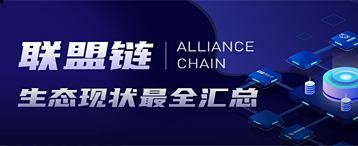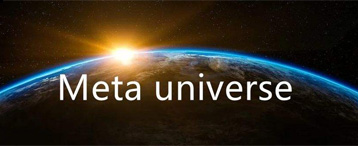-
Which blockchain platform is the best? Top 9 Blockchain Platforms.
 linkweb3
linkweb3 2023-01-03
2023-01-03 4853
4853 Tech
Tech
-
Summary:Top 9 Blockchain Platforms. Choosing one of them will eventually depend on your requirements and specific factors, such as security, supporting language, characteristics, and smart contract functions.
Are you looking for the best blockchain platform? The blockchain is becoming increasingly important. The blockchain market is expected to expand by $ 39.7 billion by 2025. This huge development has created an urgent demand for the blockchain platform. Blockchain technology was introduced for the first time with Bitcoin's first appearance in 2009. Since then, it has developed into one of the most well -known and mainstream technologies. Blockchain has various working functions other than Bitcoin. It is applied to many fields such as industrial, medical technology, supply chain, and logistics. In this article, we will discuss 9 best blockchain platforms.
What is a blockchain platform?
Blockchain platform is a software solution allowing enterprises to build applications dependent on blockchain technology. Blockchain technology refers to the use of distributed, non -transformed classification accounts to record transactions, activities and resource movements in the network. The company uses a classification account in various ways. The classification account system based on the blockchain can be applied to any application dependent on any type of transaction.
The blockchain platform operates as a development platform with integrated distributed classification accounts. This ledger is essentially an encrypted storage space for various data. Then use integrated data to help the development consensus mechanism for verification and approval transactions.
Classified accounts quotate integrated data and previously completed transactions to prevent fraud and ensure complete historical visibility. If there is suspected fraud or abuse, the company can also audit the classification account. Although these functions are some of the core functions provided by the blockchain platform, developers can still customize them with additional functions, unique user interfaces and use cases.
What types of blockchain platforms exist?
Blockchain technology can usually be defined as four parts or protocols. These four main blockchain categories are public blockchain, private blockchain, alliance blockchain and hybrid blockchain.
Public blockchain
Public blockchain is an open source and decentralized solution, and anyone can use it for transactions, development or excavation. Theoretically, they are completely transparent and publicly displayed publicly for public inspections. These ecosystems cannot be closed because there is no centralized control of its availability. If there is no centralized centralization, there will be security problems, but it will not involve transparency and listening.
Private blockchain
Private blockchain requires permissions to perform transactions, development or investigations. They are usually constructed and used by enterprises that do not want to display confidential information on public blockchains. This blockchain is easier to protect and monitor, but it is more difficult to investigate or audit.
Hybrid block
Mixed blockchain can use any combination of functions provided by public and private blockchain. This provides the company with flexibility in governance and security, and does not completely lose transparency. For example, enterprises can restrict the historical classification accounts of the blockchain to cover up or hide sensitive information without the need to completely close the history of transaction to others using the blockchain.
Alliance chain
Alliances or merge blockchain restrict the participants as pre -selected user groups. The alliance blockchain is most conducive to having a smaller group of trusted users. This allows some concentrated authorization to access the blockchain, thereby increasing transaction speed, throughput and privacy. The benefits of these increases also maintain transparency and popularity for those who have been allowed to participate.
What are the common features of the blockchain platform?
The following are some of the core functions in the blockchain platform, which can help users build, develop and deploy solutions based on blockchain:
Development: Development functions include everything required for developers to build a fully functional blockchain application. This includes the development of the environment, asset library, API, template, etc.
Governance: The governance function varies from the type of blockchain, but usually refers to the ability to control users to access private blockchain or peer network and approval of alliance blockchain.
Scalability: scalability is an important feature to consider when choosing a blockchain type. For example, an alliance solution with a small trusted network does not require a lot of scalability, but applications using public blockchain will require scalability to prevent performance, throughput and availability.
Working process: Workflowing functions will help enterprises build transaction processes. The prefabricated or customized workflow can provide basic processes for transactions, verification and settlement, and allow customized blockchain solutions to be unique to the unique steps.
Morning network: Visiting large -scale peer networks is not always preferred, but if development requires consistent transactions solutions, priority can be given. These networks can also be used to identify unbelievable recipes for threatening the network.
What are the benefits of the blockchain platform?
Blockchain platforms can provide various real -world solutions, which may be unique to any company or industry. Some of the most common horizontal solutions include the development and use of smart contracts, cryptocurrencies, and decentralized applications (DAPP)
Smart contract: Smart contracts are one of the two most mature uses of blockchain technology. As you imagine, smart contracts are contracts with integrated intelligent functions, which can ensure that certain parameters are met before automatic execution of contracts. The company can use the blockchain platform to build smart contracts for any purpose. For example, real estate developers can program smart contracts to automatically complete transactions when they meet the requirements of evaluation, inspection and mortgage loans.
Cryptocurrency: cryptocurrencies are another original use of blockchain technology. These digital assets are used to replace traditional legal currencies such as the US dollar or euro. Cryptocurrency coins are "mining" by users who have the right to access the blockchain and get rewards after solving complex mathematical problems.
Decentralization application (DAPPS): DAPPS is a program running on the blockchain network. These applications can increase privacy and reduce user censorship because no central institutions can access their information. Various DAPPs appear in the form of exchanges, games, financial tools and video games.
Non -alternative tokens (NFT): NFT is digital assets, such as art, videos or music. They use blockchain classification accounts to become unique, verified ownership identification symbols for each asset. Artists, companies, or content creators can use these to create their unique digital assets that they can buy and trade.
Software related to blockchain platform
The solutions that can be used with the blockchain platform include::
Blockchain service: Blockchain, that is, service solutions provide the blockchain platform to the company and individuals, to develop applications and solutions deployed on third -party cloud infrastructure that can be deployed in pre -configured. Compared with pure blockchain platforms, these tools provide less scalability and centralized control, but can save development time and deployment and custody funds.
Cryptocurrency software: Cryptocurrency solutions are indeed based on blockchain technology, but do not provide the development capacity of the blockchain platform. There are many applications for cryptocurrencies, but they are all related to the mining, transaction and storage of digital currencies.
Smart contract software: Like cryptocurrencies, smart contracts depend on blockchain technology and can be developed by blockchain platforms, but they are specific uses of highly variable technology. Most tools in this category provide pre -constructed but customized smart contracts running on specific existing blockchain networks.
The challenge of the blockchain platform
Blockchain solutions may bring a series of challenges.
Speed and scalability: There are huge differences in the speed and scalability of different blockchains. The settlement speed of the blockchain depends to a large extent on the ability of the platform to deal with multiple transactions, the number of transactions required to reach consensus, and the number of users who trades at any given time.
Security and privacy: Although blockchain technology is usually considered a inherent concept of privacy technology, the situation is not always the case. For example, transactions on public blockchain can be permanently and openly archived information related to both parties, if programming is done. Because private blockchain provides more privacy at the cost of transparency, developers usually must compromise in public visibility and user privacy.
Efficiency: For all potential blockchain -based applications and solutions, there are not many discussions about whether it is necessary to merge the blockchain function. For example, it can increase the transparency and auditability of existing transaction processes, but can slow down the transaction speed to half of the normal speed. Like any emerging technology, the technical concept worthy of theoretically sounds better than performing in practice than in practice.
How to choose a blockchain platform?
When deciding the best blockchain platform for your company, consider the following.
The blockchain type you need
When determining which blockchain platform is used, you must first determine the appropriate blockchain for your application. If you want your participants to be authorized before participating in the network, you will need a license network. Therefore, you must decide whether you need a permit or an unacceptable blockchain.
Platform support language
If you have an internal development team, please choose a platform to support their preferred language. You can search for platforms that are suitable for different programming languages (such as Python, Java, JavaScript, etc.).
Safety
Many organizations need to protect sensitive information, and lack of security may be harmful. Choose a platform to maintain protection to ensure that no security loopholes occur. EOS and Hyperledger Fabric are the two most popular security processing platforms.
Smart contract function
Not each blockchain platform supports smart contracts. Smart contracts can be used to verify, execute or trigger activities on the blockchain network.
Here are nine top blockchain platforms to be considered.
1. Ethereum
Ethereum is one of the oldest, most mature and leading blockchain platforms. It even developed its own cryptocurrency, called Ether or ETH. The platform provides a completely decentralized blockchain. Ethereum fully abides by the rules of smart contracts to achieve efficient operation. At present, thousands of decentralized applications are available on Ethereum.
The main advantage of the Ethereum platform is true decentralization, and its main weakness is that the speed of processing is slow and the transaction costs are high. The Ethereum platform has seen a huge wave of decentralized applications called DAPPS in blockchain applications.
The most important thing is that the Ethereum platform also has an active community composed of more than 250 developers. All Ethereum protocol developers are committed to eliminating the existence of third parties in various fields. Developers can easily build DAPP related to finance, cryptocurrency wallets, games and other DAPP. With fast deployment, you can expect your application to start immediately after you publish.
The Ethereum community has also migrated from the workload certificate (POW) consensus mechanism to a more energy -saving rights and interest certificate (POS). Migration requires a complex process to start a separate new blockchain, called the benchmark chain. The blockchain has merged into the existing main Ethereum blockchain. Ethereum Foundation estimates that compared with the old method, this can reduce the use of 99.95%.
The community is now studying a shard mechanism that will expand the capacity of storage data, expand scale, and reduce network costs. It is expected to be launched in phases in 2023 and will be fully supported in 2024.
2. IBM blockchain
Manders said that IBM Blockchain is a private, decentralized blockchain network, and the most successful attracting corporate customers who don't hate risks. He saw the biggest opportunity to connect to corporate clouds and leftover technology more seamlessly than other decentralized networks.
The IBM Blockchain developer tools are designed to be flexible, practical and customized. IBM has also invested in creating a user -friendly interface to simplify key tasks, such as setting, testing and quickly deploying smart contracts.
Rakesh Mohan, director of development of IBM blockchain solutions, said the company has made significant progress in financial services, banking and supply chain. Some examples of successful blockchain applications include IBM Food Trust. It has completed more than 18 million transactions, involving more than 17,000 products, and BlockChain Community Initiative in Thailand. It supports the payment obligations and corporate auction of 22 Thai banks and corporate auction Wait for services.
3. Cardano
Cardano is the next -generation blockchain platform based on smart contracts. The main goal of Cardano blockchain is to build a fast and scalable DAPP. Cardano has an OUROBOROS consensus mechanism, which is a safe version of the equity certification algorithm. Here, each transaction is checked by online participants, and there is no need to check them at each node.
Cardano has many characteristics, such as interoperability, scalability, transparency, and legitimacy, making it the right choice for modern financial applications. Cardano blockchain is looking forward to the desire of balanced centralization and decentralized community.
At present, many DApps on Cardano can use decentralization to enhance global payment.
4. Super ledger sawtooth wave
Another open source blockchain program hosted by Hyperledger and Linux Foundation. Hyperledger Sawtooth uses a new type of consensus mechanism called time proof of time. It can integrated with hardware -based security technology to enable the "trusted execution environment" of the program code Being able to run in safe flying places is the protected area of computer memory.
Bitwise IO chief consultant Shawn Amundson said that the most common application is to develop the supply chain system and customize SAWTOOTH for specific purposes, such as novel consensus algorithms.
The work of the Sawtooth library has begun, which will enable developers of custom distributed classification accounts to choose and select the SAWTOOTH part they use in their applications. At the same time, SAWTOOTH is using Splinter to provide dynamic private circuits (node groups); Hyperledger TransaCT is used for transaction processing, which will expand smart contract functions; consensus with Augrim, which will expand the number of support algorithms.
5. R3 Corda
There are some controversy in the alternative type of blockchain or distributed classification in R3 Corda. It uses a novel consensus mechanism, where the transaction is linked in an encrypted manner, but it will not put multiple transactions in one block in batches. Even Corda's official website describes it as "both blockchain nor blockchain." One of the main benefits of this method is that all transactions are processed in real time. Compared with other types of blockchain, this can improve performance.
The R3 League has a strong follower in the financial industry, because Corda provides a attractive method for financial transactions and smart contracts with strong security. Main supporters include Bank of America, HSBC, Intel and Microsoft. It supports the business logic of automation across corporate boundaries. The organization has recently launched the technical preview of Corda Payments, which simplifies the process of building a distributed payment function into an application.
Manders said that Corda is likely to be a de facto insurance -related transaction processing network. However, it is facing competition from other merge blockchain networks that can handle transactions faster and cheaper.
6. Tezos
Tezos has been developed since 2014. It is an older platform that supports decentralized applications, smart contracts and new financial tools. For example, NFT can be regarded as a modern variant of trading cards bound to digital assets. The platform supports dynamic upgraded protocols and modular software clients to enable it to adapt to new purposes. The TEZOS community has been upgrading the platform rapidly. Recent enhanced functions have improved performance and increased the size of smart contracts. It also developed tools to help the process of weaving NFT into the enterprise supply chain.
7.EOS
EOS is another blockchain platform for the development of DAPP. The platform can be called an extended version of the Ethereum and Bitcoin blockchain, because EOS supports certain features, and both are actually lacking.
The EOS blockchain network provides decentralized storage of smart contract functions, DAPP hosting and corporate solutions to solve scalability problems. You can build financial applications on EOS to execute transactions at lower costs. The most important thing is that developers can deploy executable smart contracts according to business needs.
EOS blockchain allows developers to expand their ideas by building different applications on the blockchain network. You can easily develop modern financial applications, games, business solutions, etc.
8. Stellar
Stellar is a newer blockchain platform that optimizes various DEFI applications. It uses the Stellar consensus agreement, which is said to speed up the time required to deal with and complete the transaction on the public blockchain network. It also includes a security mechanism used in financial transactions to refuse bad or suspicious actors. It has been used by many companies for international trade and cross -border currency exchange. Application examples based on Stellar blockchain include MoneyGram for remittances, Circle, which is used to pay and fund infrastructure, and Flutterwave, which is used to integrate payment processing to enterprise applications.
9. ConsenSys Quorum
Quorum is a customized version of Ethereum developed by financial service company Morgan Chase. It uses the core work on the Ethereum blockchain platform and re -packs it into an enhanced environment suitable for banks. It is optimized to support high -speed transactions between supporting institutions, such as banks and insurance companies on dedicated networks. It also adds various privacy enhancement functions to Ethereum to improve support for regulations such as European GDPR and California CCPA.
Consensys purchased the intellectual property assets of the Quorum platform from JPMorgan Chase at the end of 2021, and integrated these assets into its own work to create the Consensys Quorum open source protocol layer. Consensys has positioned this product as a way for enterprises to accelerate development enterprise applications to supplement other Ethereum -based tools. The company provides merge platform development services for corporate customers including JP Morgan Chase and South African Reserve Banks. In July 2022, it launched the Quorum Blockchain Service on Microsoft Azure as a complete custody service to help simplify corporate deployment.
The above content introduces 9 best blockchain platforms. The blockchain has different types, so people need to understand which type of blockchain is suitable for them. Choosing one of them will eventually depend on your requirements and specific factors, such as security, supporting language, characteristics, and smart contract functions. The use and growth of blockchain are growing.
Disclaimer:As an open information publishing platform, shilian only represents the author's personal views and has nothing to do with shilian. If the article, picture, audio or video contains infringement, violation or other inappropriate remarks, please provide relevant materials and send it to: 2785592653@qq.com.
Hint:The information provided on this site does not represent any investment suggestion. Investment is risky, and you must be cautious when entering the market.
ShilianFan group:Provide the latest hot news, airdrop candy, red envelopes and other benefits, WeChat: rtt4322.
















